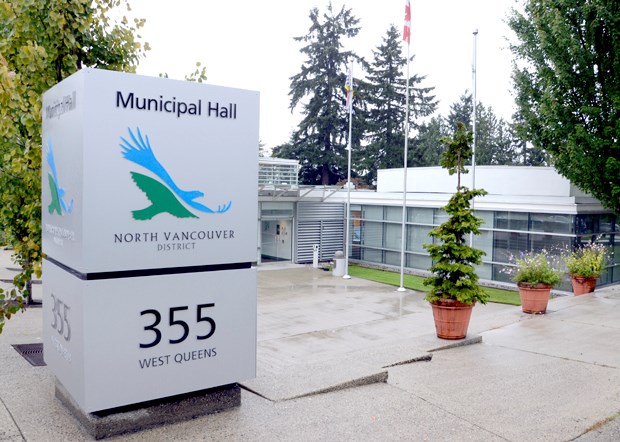District of North Vancouver property tax rates are going up three per cent this year.
District council passed its 2016-2020 financial plan, including its operating and capital budgets Monday night.
For a typical homeowner who saw their $1-million home assessed the average 15.7 per cent higher in 2015, that should amount to a $60 increase in their municipal taxes. The cost will be disproportionately higher for homeowners whose property assessments grew beyond the average.
Residential property owners will be expected to pay $2.11 for every $1,000 in assessed value on their homes (although that does not include utilities or taxes going to Metro Vancouver, TransLink or the North Vancouver school district). The district is anticipating water, sewer, recycling and garbage pickup to cost $1,541 for single-family homeowners.
By comparison, the District of West Vancouver’s tax rate went up by 6.87 per cent and the City of North Vancouver’s went up 3.9 per cent.
Of the three-per-cent increase, two per cent will go to inflationary costs in the district’s operating budget, largely due to negotiated wage increases and higher contracting costs. The other one per cent will be set aside for the $124,000 million in capital projects and replacing aging infrastructure.
Major items on that list include $18 million for completion of the new Delbrook Community Recreation Centre, $4.9 million for completion of the Keith Road and Montroyal Boulevard bridges, $5 million for new garbage and green bin carts for residents, $4.8 million for the annual water main replacement program, $4.3 million for road rehabilitation, $3 million to replace culverts and install debris basin improving creek and watercourse management.
The district has roughly $100 million worth of assets in poor or very poor condition and climate change is driving up costs as storms are leaving more damage in their wakes, according to staff.
Of the $94 million in taxes collected this year, about $602,000 will be coming from new developments.
Council passed the budget and tax increase with little debate at the council table, save for a few comments on the district’s prudence in setting aside extra money for depreciating capital assets.
“I’d just like to comment that North Vancouver district really leads the province when it comes to work done to document fully the condition of its assets to prepare. We are leaders in this and we’re well ahead of the pack,” said Mayor Richard Walton. “We should be in good shape for the future going forward, certainly better than many communities.”
The practice of setting aside an extra one per cent for capital replacement has gone on for the last 12 years.
During its public input period for the budget held earlier this month, there were only a handful of comments made.
Browning Place resident Dave Iverson took council to task for rising taxes and growth in salaries for its senior managers at a rate not matched by increases in residents’ take-home pay.
“But what about the rest of us? I ask the district, what studies have you conducted to show that your residents have had their salaries rise at the same rate as yours? We are continually being asked or told to do more with less but the district does not seem to adhere to that same kind of thinking,” he said.



